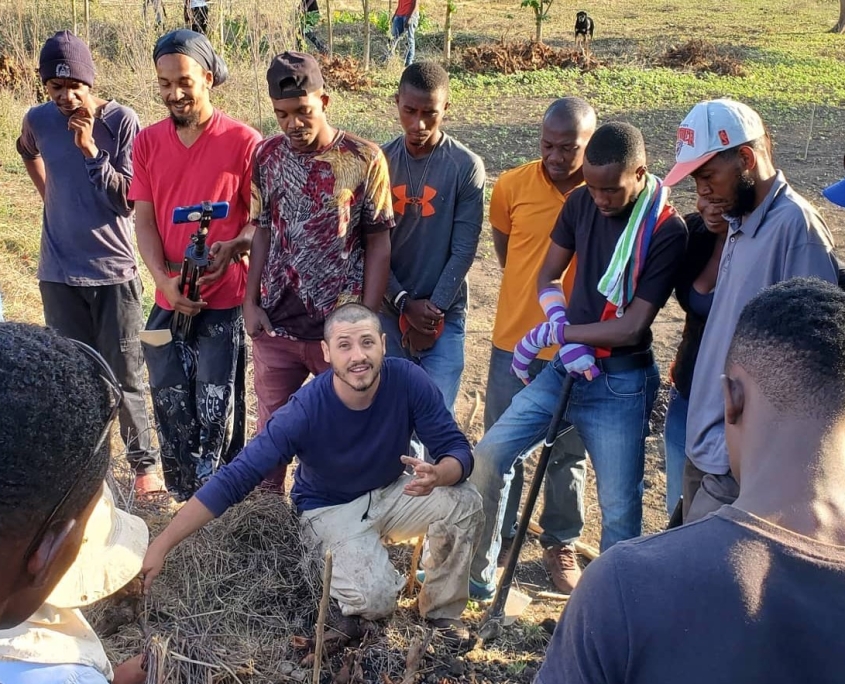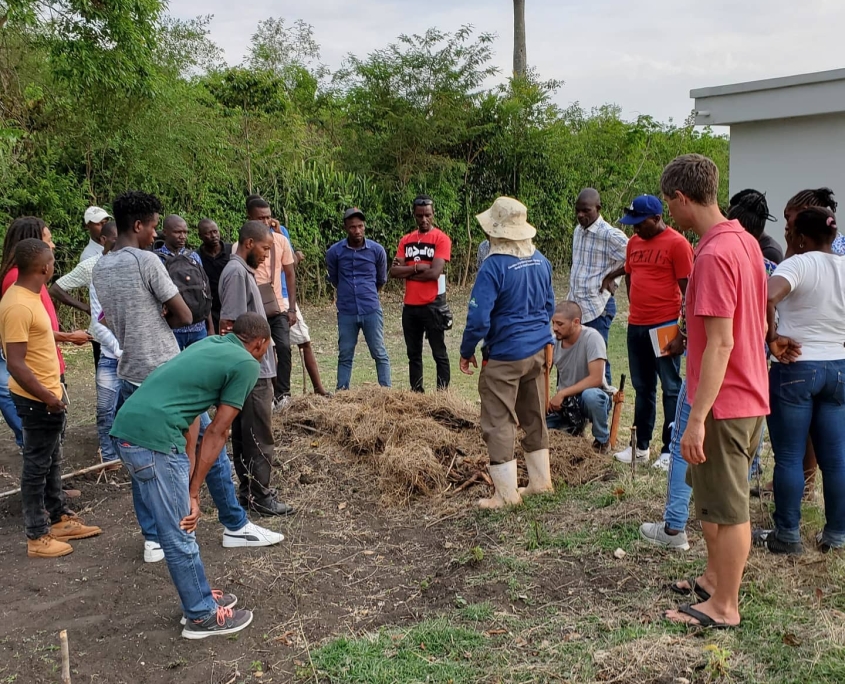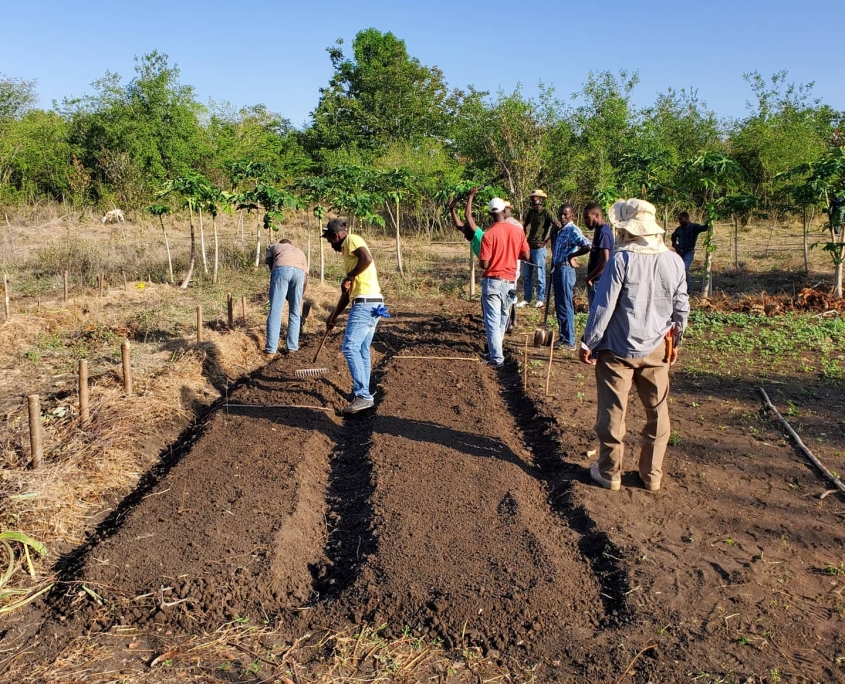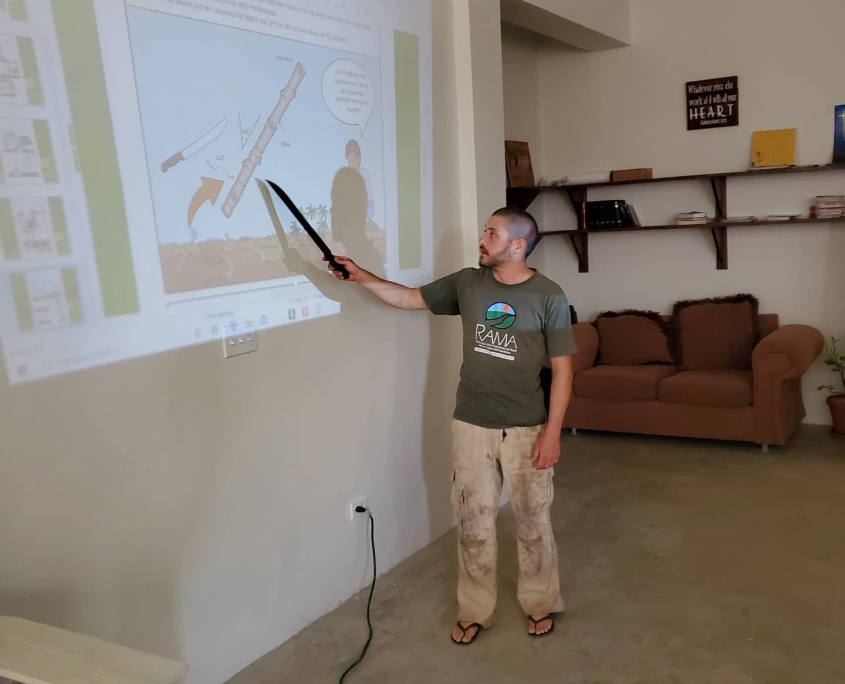If you are ready to roll up your sleeves and get working on your very own syntropic garden, then come to this 4 day/3 night practical workshop. It’s for serious participants only. Starts at noon on Friday November 3 and ends at 1pm on Monday November 6.
The goal of this initiative is to integrate some of the best farming practices in Haiti with the proven principles of regenerative agroforestry from Brazil. We believe that by sharing information in both directions, we can come up with creative solutions that will serve the poor farmers of Haiti and restore the land.
At the completion of this workshop, each student will understand the basic principles of syntropic farming and be able return home and plant a system on their land.
We will spend half of the day working in the garden and half the day learning in a classroom. So bring your work boots and be prepared to get sweaty and dirty. This approach to farming is proven for those who want to focus on harvests from trees (fruit/timber), market gardens or silvopasture (livestock). Those who want to use this for large scale commodity crops (beans, corn, sugar cane, etc) must accept some risks, as this is currently experimental. Support will be provided after the workshop to ensure success via a Whatsapp group chat. The intention is to build a long-term relationship through twice yearly visits until we are confident that the attendee has mastered this approach to farming. We will also visit twice a year to help participants apply the syntropic principles successfully.
Participant requirements:
-
-
submit an application, receive an acceptance notice and pay the fee.
-
have access to land to plant trees.
-
be capable of doing all the farming work (tilling, planting, weeding, etc.) needed to plant and manage a garden.
-
Pay the fees for the implementation of own garden.
Before attending, it is highly recommended to watch the following video and read the guidebook:
Video: Life in Syntropy (in English) Life in Syntropy (in Kreyol)
Guidebook: Abundance Agroforestry (in English) Agrikilti Sentwopik (in Kreyol)
For those invited, further details, such as travel directions and preparation instructions will be given. Your spot is confirmed, only after payment of $100 USD is received. Payment is nonrefundable. A maximum of 40 students will be accepted for this workshop.
Attention: There will be no certificate awarded for this training. If the attendee learns well, their garden will speak for itself.




